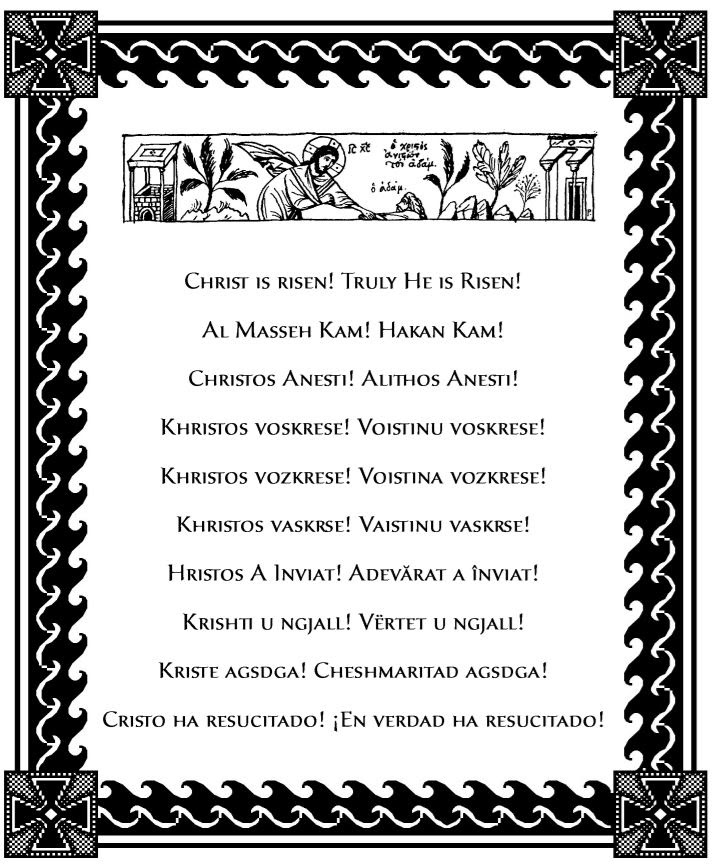
+++
Worship Opportunities
Wednesday (June 5): Leave-Taking of PASCHA
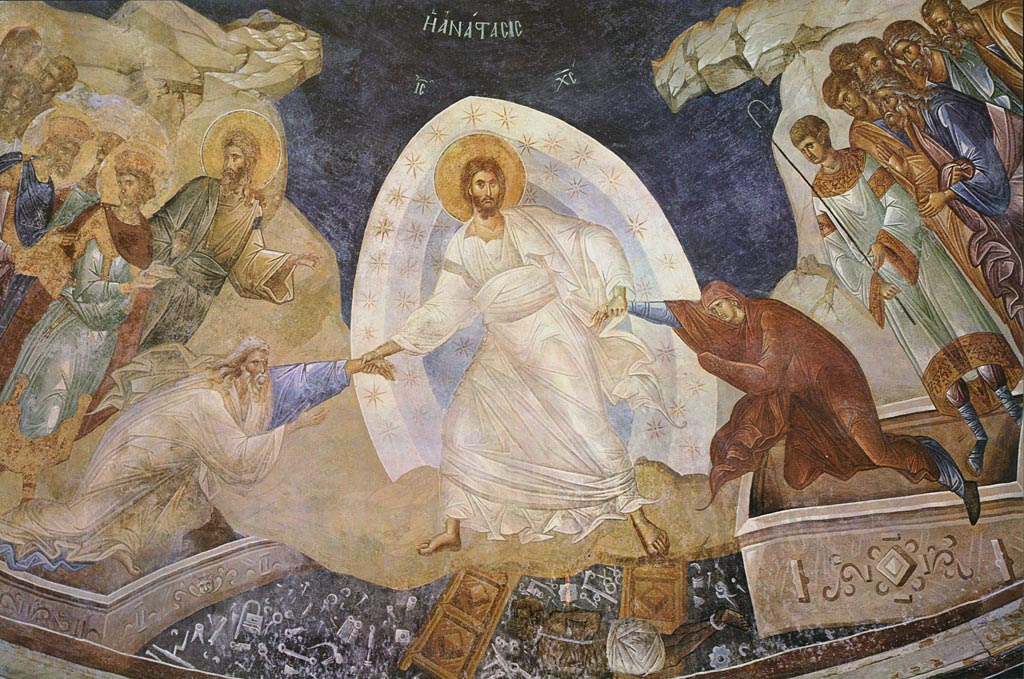
Preparation Prayers: 9:00AM
Divine Liturgy: 9:30AM
Thursday (June 6): Great & Holy Ascension of Christ

Festal Orthros: 8:30AM
Divine Liturgy: 9:30AM
+++
Sunday of the After-feast of the Ascension
[Commemoration of the Holy Fathers of the First Ecumenical Council]
Cyril, archbishop of Alexandria; Pelagia and the three Virgin-martyrs of Chios; Venerable Cyril of Belozersk; Venerable Columba, enlightener of Scotland
June 9, 2019
“Thou, O Christ, art our God of exceeding praise Who didst establish our holy Fathers as luminous stars upon earth, and through them didst guide us unto the true Faith, O most merciful One, glory to Thee.”
+ Apolytikion of the Holy Fathers in Tone Eight
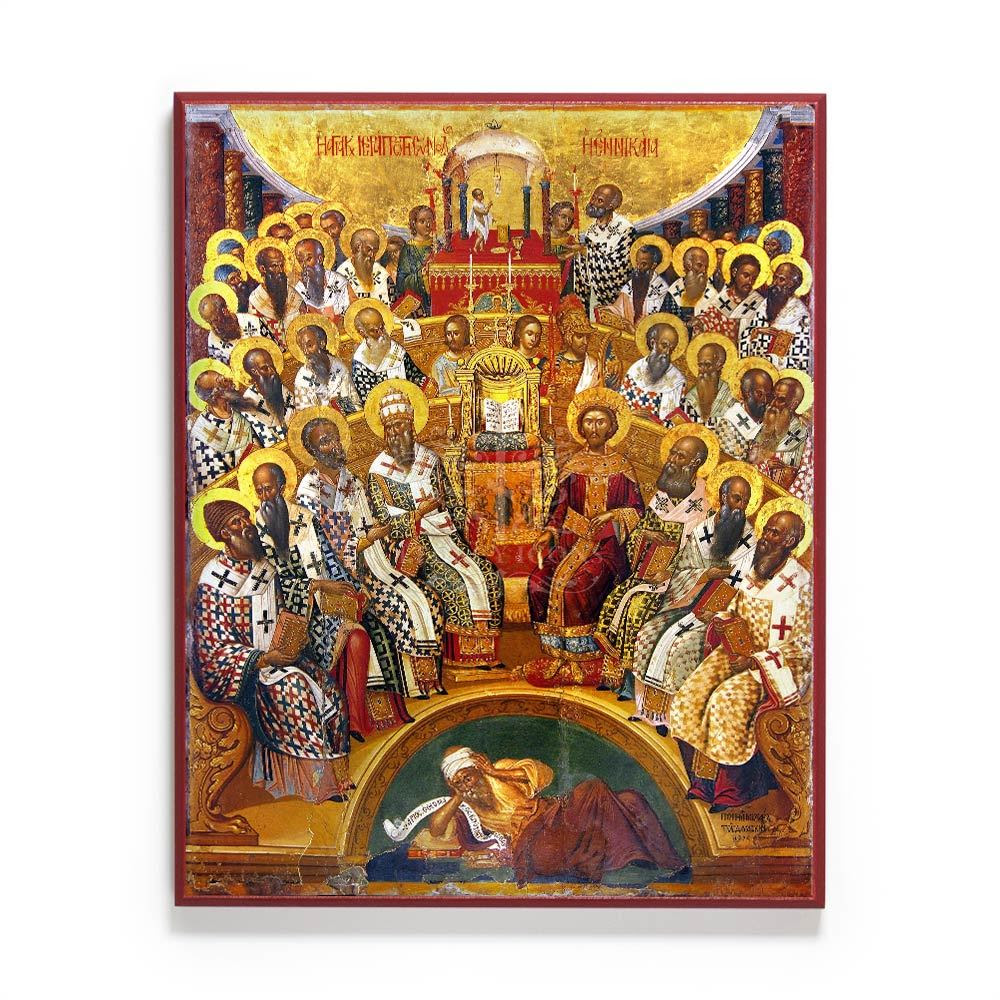
“…Thus laying down the noble Confession of Faith, The Creed, which we Orthodox Christians recite to this day. The Church regards these divine Fathers as preachers of the Faith next to the holy Apostles.”
From the Synaxarion (What is that?)
On June 9 in the Holy Orthodox Church, we commemorate our father among the saints Cyril, archbishop of Alexandria; Pelagia and the three Virgin-martyrs of Chios; Venerable Cyril of Belozersk; and Venerable Columba, enlightener of Scotland. On this day, the seventh Sunday of Pascha, we celebrate the first Ecumenical Council of the 318 God-bearing Fathers, which took place in Nicaea in Bithynia.
Verses
O ye light-bearing stars of the spiritual firmament, enlighten my mind with your rays.
Verses Against Arius
Calling the Son a stranger to the Father’s essence, Arius proved to be a stranger to God’s glory.
Arius, the notorious heretic, began to blaspheme against God and His Son the Word, saying that the latter was not God consubstantial with the Father, but that He was created as a stranger to the Substance of the Father and His glory. Alexander, the Archbishop of Alexandria, tried to constrain Arius from disturbing the faithful with this teaching; even though Alexander excommunicated him, Arius did not cease his blasphemy, which spread throughout the Church in all nations. Thus, Emperor Constantine the Great called the First Ecumenical Council, which gathered bishops and teachers in the Church from all lands. They all proclaimed, as by one mouth, the equality of the
The Reading from the Acts of the Apostles. (20:16-18, 28-36)
In those days, Paul had decided to sail past Ephesus, so that he might not have to spend time in Asia; for he was hastening to be at Jerusalem, if possible, on the day of Pentecost. And from Miletus he sent to Ephesus and called to him the elders of the church. And when they came to him, he said to them: “Take heed to yourselves and to all the flock, in which the Holy Spirit has made you overseers, to care for the church of God which he obtained with the blood of his own Son. I know that after my departure fierce wolves will come in among you, not sparing the flock; and from among your own selves will arise men speaking perverse things, to draw away the disciples after them. Therefore, be alert, remembering that for three years I did not cease night or day to admonish everyone with tears. And now I commend you to God and to the word of His grace, which is able to build you up and to give you the inheritance among all those who are sanctified. I coveted no one’s silver or gold or apparel. You yourselves know that these hands ministered to my necessities, and to those who were with me. In all things I have shown you that by so toiling one must help the weak, remembering the words of the Lord Jesus, how He said, ‘It is more blessed to give than to receive.’” And when he had spoken thus, he knelt down and prayed with them all.
The Reading from the Holy Gospel according to St. John. (17:1-13)
At that time, Jesus lifted up His eyes to heaven and said, “Father, the hour has come; glorify Thy Son that the Son may glorify Thee, since Thou hast given Him power over all flesh, to give eternal life to all whom Thou hast given Him. And this is eternal life, that they know Thee the only true God, and Jesus Christ Whom Thou hast sent. I glorified Thee on earth, having accomplished the work which Thou gavest Me to do; and now, Father, glorify Thou Me in Thy own presence with the glory which I had with Thee before the world was made. I have manifested Thy Name to the men whom Thou gavest Me out of the world; Thine they were, and Thou gavest them to Me, and they have kept Thy word. Now they know that everything that Thou hast given Me is from Thee; for I have given them the words which Thou gavest Me, and they have received them and know in truth that I came from Thee; and they have believed that Thou didst send Me. I am praying for them; I am not praying for the world but for those whom Thou hast given Me, for they are Thine; all Mine are Thine, and Thine are Mine, and I am glorified in them. And now I am no more in the world, but they are in the world, and I am coming to Thee. Holy Father, keep them in Thy Name, which Thou hast given Me, that they may be one, even as We are one. While I was with them, I kept them in Thy Name, which Thou have given Me; I have guarded them, and none of them is lost but the son of perdition, that the scripture might be fulfilled. But now I am coming to Thee; and these things I speak in the world, that they may have My joy fulfilled in themselves.”
Source: antiochian.org
+++
“BUILDING” OUR FUTURE
A note from Fr. Paul Girgis and Elias Hebeka
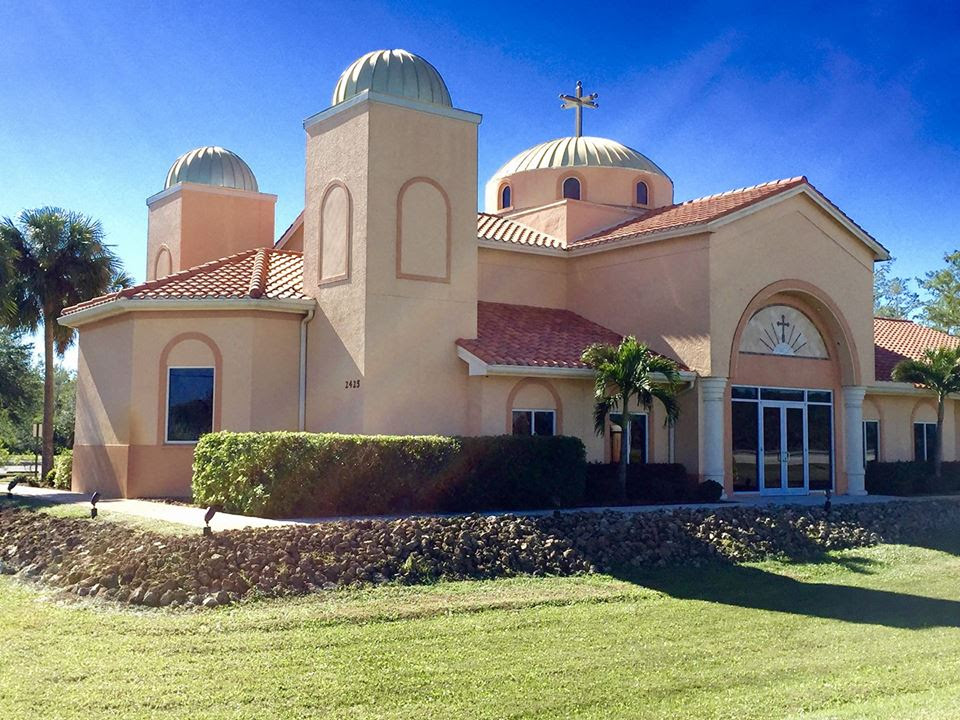
Dear St. Paul Church family,
Christ is risen! Truly He is risen!
Looking ahead to the promising future of St. Paul, the Parish Council has formed a Building Committee to explore the options available to accommodate the continued steady growth (spiritually, physically and socially) of our parish.
The Building Committee consists of:
Steve Jackson – Chair
Rdr. Demetri Agoristas
Philip Ayoub
Ray Mansour
Shirley Nicholas
The goal of the committee is to explore the feasibility of building a climate-controlled Fellowship Hall, determine a suitable and convenient location, size, amenities and in a style that complements the architecture of our present beautiful church building. God willing, this new building will replace the pavilion as the main parish social space.
Through the prayers of the holy Apostle Paul – our patron and protector – the Building Committee is moving prayerfully, cautiously and responsibly. As such, periodic updates will be provided to the Parish family as the exploration and feasibility progresses.
May it be blessed.
Fr Paul Girgis Elias Hebeka
Presiding Priest Parish Council Chair
+++
Community Bible Study
Thursday’s 6:00PM-7:00PM
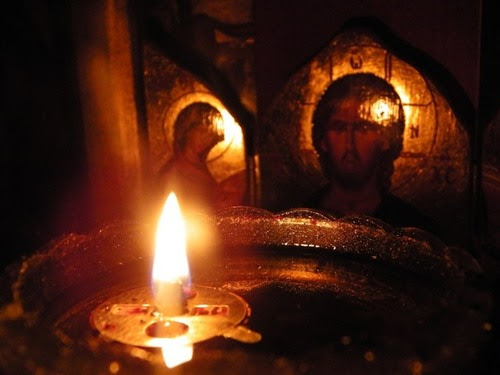
If we don’t know our faith, how can we live it?
Join us in gathering together to learn about the Holy Scriptures through the lens of the Ancient Christian Faith.
This is not a lecture hour with Fr. Paul but rather a warm-discussion about the relevant reading and how it fits into our personal life, local community, and world.
This is how we learn about the Faith, which was “once for all delivered to the saints” (Jude 3).
+++
Great Vespers
Saturday’s 6:00PM

Why is Great Vespers important?
“The service leads to the meditation of God’s word and the glorification of his love for men. It instructs and allows us to praise God for the particular events or persons whose memory is celebrated and made present to us in the Church. It prepares us for the sleep of the night and the dawn of the new day to come. On the eves of the Divine Liturgy, it begins the movement into the most perfect communion with God in the sacramental mysteries.”
Learn more about Great Vespers here
+++
“EVERY ONE OF US IS A POTENTIAL SAINT”
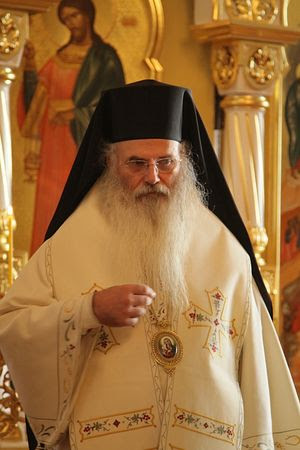
“Every one of us is a potential saint, even if we do not believe right now! Metropolitan Nicholas (Khadzhinkolai) of Mesogaia and Lavreotiki, a hierarch of the Greek Orthodox Church, considers disbelief the most valuable experience in the spiritual life.”
Metropolitan Nikolaos (Hatzinikolaou) has degrees in Physics, Astrophysics, Mechanical Engineering, Biomedical Engineering and Applied Mathematics, Theological Studies, and Theology. IN 2003, he received a Ph.D. in Theology from the University of Thessaloniki on Orthodox Christian Ethics and Bioethics and has been awarded the honorary title of Doctor of Social Theology by the University of Athens.
He has worked as a researcher and scientific partner in hospitals and as a scientific adviser in Space Medical Technology in the U.S. Upon his return to Greece in 1989, he was tonsured a monk in Mount Athos and then ordained a deacon and a priest. IN 2004, he was elected Metropolitan of Mesogai and Lavreotiki. Among his other activities, he founded the first hospice in Greece under the auspices of the Church. He is the author of numerous theological and scientific writings and a frequent participant in conferences regarding a broad spectrum of social and bio-ethical issues, and the relationship between Orthodox theology and modern science.
+Interview pasted below (source here)+
—Despota Nicholas, why does disbelief have meaning and value for you? It is, quite frankly, paradoxical to hear from a metropolitan…
—Because the Lord reveals Himself only to those who sincerely doubt His existence. I doubted. When I was seventeen, I straight out said, “I am an atheist.”
—Did it last long?
—About until I was twenty-two. I still believe it’s better to humbly doubt from the sidelines than to boast of being within the Church’s enclosure [when you don’t actually believe]. My best teachers in the faith were not “savvy” theologians and hereditary clergymen, but those who underwent the novitiate of unbelief.
—It’s all the stranger to hear from a Greek—it’s more like something from recent Russian history…
—Greece truly perceives itself as being within the two-thousand-year continuous tradition, and with you [Russians—Trans.] everything is indeed being born again! This explains the inexpressible color and freshness of Church life. It is a revolution of the Spirit! It’s unique in the history of mankind and indicative for Orthodoxy throughout the world, because our faith is not of this world. That’s why I didn’t want to believe in my youth simply “because you have to.” I didn’t need anyone’s stories and arguments about Christ, I was looking to experience His presence. But He didn’t come. And I confessed: “I don’t know anything about Him.” The true God is the One without Whom it’s impossible to live. The Church lives by Him, because He isn’t a certain sum of opinions about Him by certain people; He is Life itself.
Since you’re already physicists… First lessons on Athos
—Even St. Paisios the Athonite was infected with disbelief in his adolescence. Did you meet Elder Paisios while you were still an unbeliever?
—Yes, and I didn’t understand him. I can even say I was scared. He was obviously able to unfurl my life—I felt it but didn’t succumb. I tried to get out from under his influence. I thought, let him train on others.
I remember when I first went to see him in his kalyva with my brother, he asked: “What do you guys do?” “We’re physicists,” we answered. “Listen! Since you’re already physicists, you have to achieve the main thing—the disintegration of the atom of your own self. Then subtle energy will be released, by which you will be able to escape the Earth’s gravity and embrace the contemplative Sun, which is Christ.”
I really liked how, using the language of science familiar to us, he opened spiritual horizons to us. Over time, these horizons became significantly more interesting even than cosmic heights for me.
In our first visit to the elder, I heard how some high schooler asked his blessing to become a novice and the elder joked: “Have you finished college?!” and when he, downcast, said he was still only in high school, the elder said: “I only take those with a university diploma!” I remember that…
Do you know what else he interested us in in our first visit? He said: “I don’t know what sciences you’re studying there, in your universities, but if you come here, to the Holy Mount Athos, then understand that here we study only one natural science—holiness. If someone loves God above all, then he feels that his skin is softening, and he melts all over like wax, receiving the fire of God’s blessing. Thus is the human soul freed…”
This was incomprehensible for me at the time… But the elder continued.
“There’s one man,” he said (I think about himself), “who is sometimes transported to other places on the planet.” Can you imagine what it was like for physicists to hear this?! “During his prayer here, on Athos, the Lord enraptured him and carried him to the region of the Caspian Sea… and gave him a commission. When he fulfilled it, God carried him back. How could that happen? And what proof is there that it really happened? When he returned to his cell he suddenly saw in his hand a flower that only grows in the Caspian region…”
I didn’t believe him then. I perceived everything too rationally then. I still don’t know how much I have managed to split the atom of my self; but at least now I don’t have a problem perceiving such stories.
“You no longer ask: Does God exist? You see Him!”
—Then you were even able to live next to Elder Paisios?
—Yes, my college degree helped [laughs]. I really went and showed him my diploma and reminded him of his words… But he generally wasn’t taking anyone to himself.
I’ll tell you, these are completely different things: To hear something about a saint, to read about his works, to meet a saint, and to live together with a saint. When you find yourself near such a person, like Elder Paisios, you are assured: The Lord lives. He’s real and you communicate with Him. You no longer ask: Does God exist? You see Him!
—That is, knowledge in the Church is always experience? And this in particular is the difference between faith and scientific knowledge?
—The power of faith expands your consciousness beyond its inherent rationality. God is bigger than our conceptions of Him. Those who seek Him with their reason will not find Him, because such a God does not exist. There is no God Who can be deduced from the equation of life and proved logically. The true God is born in the heart in the experience of faith, and thus death is overcome.
I really envy in a good way those youths who entered the monastery before being poisoned by skepticism, pragmatism, and rationalism. Their nouses have not fallen to the ground. Otherwise, such reason would impede the search for God. It’s impossible to comprehend God with such a mind.
God can reveal Himself. And He does it only if you humble yourself, recognizing your mind as nothing. And then, having already experienced God, you can turn to your mind to tell others something about the Creator. But not anything more than what God Himself revealed to you about Himself.
In academic life we try to understand something and make a discovery at all costs. But our spiritual life reveals to us that some things are impossible to understand in principle.
Humility is the whole essence!
—Is that how a man humbles himself?
—Humility is the alpha and the omega of the spiritual path. For God resisteth the proud, and giveth grace to the humble (1 Pet. 5:5). The great St. Gregory Palamas constantly prayed: “Lord, illuminate my darkness.” Humility—in it is the whole essence!
This fully applies not only to the spiritual life, but also to academics. The skills of honest scientific research help us to see God as if through a person and the visible cosmos—and to humble ourselves. When an academic reaches the unsolved mysteries of existence in his scientific search, he stops, feeling his powerlessness to learn anything more. Then he begins to humbly do his work. This is “humility”—the whole point of true science.
—Then why, having made your greatest discovery, didn’t you continue humbly doing your work, but instead became a monk?
—When you have the opportunity to fly to Heaven, you can’t bear to wander along the earth.
—Despota Nicholas, what should those who haven’t yet had the experience of such spiritual levitation do?
—Pray. If we don’t notice miracles, we don’t see them only because we don’t know how to pray. If we want to see great miracles, we should become people who know how to pray.
In prayer, our heart unites with Christ
—How can we learn to pray?
—This world tries in every way to divert us from prayer, cramming our minds with various supposedly necessary knowledge and information. Ignorance, in fact, can be as valuable as the experience of unbelief. Empty your heart of all worry. Learn to minimize attention to that which scatters. Abba Isaac the Syrian said that in prayer all external feelings are killed, while the internal ones awaken. Sometimes it’s like the resurrection of Lazarus the Four-Days-Dead: Come forth!—in prayer the soul hears the voice of the Savior and goes beyond the mortal frame of this world.
“It’s probably difficult,” you’ll say. “Difficult, but necessary. And it’s not impossible,” I respond. We have to start with the small things: Maybe you won’t read all the morning prayers at first, but we have to pray at least a little.
—On the contrary, neophytes often want to undertake great podvigs immediately.
—It’s a problem if there is such a desire. Even drivers know that we can’t start from fifth gear—only from first.
—Do you have a recommendation for how it’s better to begin learning prayer—with diligence in home or church prayer?
—They are different things: When we pray in church, we ascend to an orbital station and move along a trajectory already verified by the Holy Fathers, and when we pray in private, we create our own means of transportation and set off on a journey! Both are important. Ten minutes—is that a lot? Five minutes? Only, from your whole heart! You just have to calm down, detach yourself from the vanity of the past or the coming day, and pray from your whole heart!
—And if prayer is done mechanically, is there no point in such a morning or evening rule?
—No, you still have to “read” them. Even mechanically. Generally, of course, we need to pray correctly. That would be better! But you shouldn’t only eat in restaurants, but also cook yourself sometimes. Do you understand? It’s also humbling. And then, we need to constantly remember that there is a large difference between what is called “reading prayers” and “praying.” Prayer is when your heart begins to move in a certain direction, set by the Gospel commandments, and unites with Christ. We must learn to trust God.
We were standing before the burial shroud not long ago… The Lord wasn’t crucified for us so that we would rot alive in many cares. Pascha is not exhausted by the days of Bright Week.
Principles of life for those striving for holiness
—Despota Nicholas, share with us, please, some secrets of mastering the science of holiness.
—I’ll name four Greek words that are the basic principles of life for the Athonite monk-hesychast, and for any person striving for holiness.
Aνάτασις—ascent! Let us lift up our hearts! Our soul has the possibility of reaching the most unimaginable heights. A man who has experientially felt that this is so is already more like an angel than a man. His condition is more consistent with being in the Kingdom of Heaven, it’s already incomparable with the state in which the rest of the people on Earth live. He doesn’t need to protect God and the Church in discussions anymore; people around him don’t have any questions anymore. This is because his soul has risen so high. This is part of the capabilities of our souls!
Έκστασις—ecstasy. In all of our actions there must be a surmounting impulse. We’re doing everything for God’s sake! After all, is there anything more important than God?! We trust our logic, science, and the news we hear every now and then, so why can’t we trust God?! It is always beyond the limits of fallen human nature. It doesn’t mean the essence of man is overcome, but we are called to go beyond the bounds of our habits, passions, and sins.
For this to happen requires έντασις—tension, which comes from the experience of the ascetic struggle. We must labor ascetically with perseverance. The kingdom of heaven suffereth violence, and the violent take it by force (Mt. 11:12).
And this tension is resolved in έκτασις—the stretching of human nature beyond its capabilities.
We ourselves don’t know what’s hidden within us
There are unlimited possibilities hidden within every one of us—they’re just sleeping. Watch and pray(Mt. 26:41), we are commanded in the Gospel. The university of the Church allows us to discover these possibilities. When we free them, our soul can be in constant compresence with God. This is what Elder Paisios spoke about it in our first meeting, but I couldn’t understand it then…
But in fact, all the saints, any man of God, until he begins to lead an ascetic lifestyle, doesn’t know that he can pray so long and fast, so much and so simply, and so on. If God hadn’t revealed to him that this is all already within his capacity, he himself wouldn’t know.
—Indeed, capacity, they say, is from experience…
—That’s why we need to start living with God, so all the depth of the possibilities of our nature would be revealed before our eyes are closed. Every one of us is a potential saint. It’s a pity to die without having tried anything like that, don’t you agree?
The whole life of the Church is filled with examples of the courage of people who decided to live with God. Imagine, the world couldn’t know Sts. Sergius of Radonezh or Seraphim of Sarov, and they themselves wouldn’t know what forces are hidden in their souls if not for the experience of the Church!
However, the meaning of life is not in achieving extreme goals, but in humility—and through humility the Lord gives the opportunity for our soul to open up in the measure and direction that is pleasing to Him.
Olga Orlova
spoke with Metropolitan Nikolaos of Mesogaia and Lavreotiki
Translated by Jesse Dominick
5/15/2019
